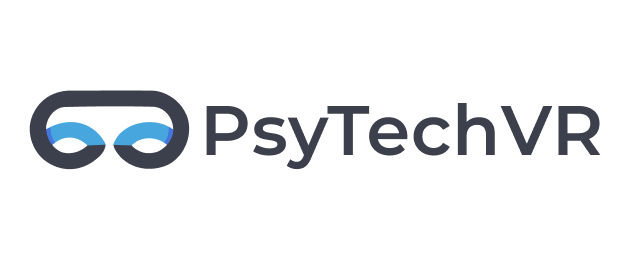Blog - Wellness
Self-guided travel therapy training in VR for Mental Wellness
By Daniel Andreev, Chief Product Officer at PsyTech VR
October 20, 2022
The efficiency of Travel Therapy
The efficiency of Travel Therapy
Researchers from Ohio University have found that people can relieve stress by viewing natural landscapes using virtual reality headsets.
Knowing that people's heart rate and blood pressure drop, as well as the production of cortisol, the stress hormone, when outdoors, the researchers wondered if this could be the case in nature, recreated in virtual reality in front of a person's eyes. More specifically, can simulations of nature reduce the stress of people working in healthcare facilities during a pandemic?
Knowing that people's heart rate and blood pressure drop, as well as the production of cortisol, the stress hormone, when outdoors, the researchers wondered if this could be the case in nature, recreated in virtual reality in front of a person's eyes. More specifically, can simulations of nature reduce the stress of people working in healthcare facilities during a pandemic?

To this end, the researchers recruited 102 medical workers from three COVID departments in hospitals to conduct the study.
Each participant put on a virtual reality headset and watched a three-minute video of lush green nature. Notably, VR headsets have allowed users to turn their heads to look around as if surrounded by trees, flowers, or flowing water and hear the sounds of birds, the breeze, or the murmur of water. Each volunteer was also asked about their stress levels before and after watching the video.
The researchers found that the volunteers rated their stress level at an average of 5.5 on a scale of 1 to 10 before watching the video. This figure dropped to 3.3 after watching the video. The researchers also noted that those volunteers who reported a stress level above 6.8 before watching the video had a 32.4% reduction in stress levels to 3.9 after watching the video.
Researchers worldwide believe virtual reality could be a relatively simple and inexpensive way for hospitals and other medical institutions to reduce stress on patients and hospital staff.
The researchers found that the volunteers rated their stress level at an average of 5.5 on a scale of 1 to 10 before watching the video. This figure dropped to 3.3 after watching the video. The researchers also noted that those volunteers who reported a stress level above 6.8 before watching the video had a 32.4% reduction in stress levels to 3.9 after watching the video.
Researchers worldwide believe virtual reality could be a relatively simple and inexpensive way for hospitals and other medical institutions to reduce stress on patients and hospital staff.
Stress and burnout at work
Stress and burnout at work
Mental health today includes an urgent problem - the syndrome of emotional burnout, and this is super relevant for workers in various types of organizations. People burn out and get tired because they are exhausted physically and morally, including social fears (public speaking and others), problems with communication in a team, and other anxieties.
How is a syndrome of emotional burnout different from normal fatigue?
Most people usually take two days off to recover from fatigue fully. If, after a long vacation, you go to work tired and devastated, this is most likely an emotional burnout.
Most people usually take two days off to recover from fatigue fully. If, after a long vacation, you go to work tired and devastated, this is most likely an emotional burnout.

Negative consequences of the syndrome of emotional burnout
1) Health
The risk of developing coronary heart disease, stroke, and chronic disease worsening increases. Emotional burnout syndrome can be complicated by depression, anxiety disorders, addictions to psychoactive substances, psychosomatic illnesses, and suicide.
2) Personal life
The need to get away from all people for a while, the desire for loneliness, and irritation are realized at the expense of family and friends.
3) Work
1) Health
The risk of developing coronary heart disease, stroke, and chronic disease worsening increases. Emotional burnout syndrome can be complicated by depression, anxiety disorders, addictions to psychoactive substances, psychosomatic illnesses, and suicide.
2) Personal life
The need to get away from all people for a while, the desire for loneliness, and irritation are realized at the expense of family and friends.
3) Work
- deterioration in the quality of performance
- loss of creativity in problem-solving
- feeling of emotional exhaustion
- indifferent attitude towards clients, partners, or colleagues
- a decrease in the desire for self-realization
- decreased confidence in their competence
- decrease in belief in success
- increase in the number of conflicts
- increase in the number of errors
- absenteeism

Due to the current epidemiological situation associated with the COVID-19 pandemic, many people have begun to experience significant stress and anxiety.
People hurt their colleagues, as they contribute to the emergence of conflicts and disrupt work tasks. Thus, burnout can be "contagious" and spread through informal interactions at work.
Managers who need a modern, comprehensive working environment that underpins their individuals must proactively contribute and invest in mental well-being. The need is real, and the time is now.
Managers who need a modern, comprehensive working environment that underpins their individuals must proactively contribute and invest in mental well-being. The need is real, and the time is now.
Training in VR for Mental Wellness
Training in VR for Mental Wellness
Human interaction with VR/AR in psychological therapy, particularly in treating anxiety disorders is very important with the adoption of technologies in modern society.
Mental Health and Virtual reality are no longer the imagination of crazy science fiction writers. Now, it is enough to plunge into another fascinating world of travel therapy to try out an innovative solution from PsyTech VR!
Mental Health and Virtual reality are no longer the imagination of crazy science fiction writers. Now, it is enough to plunge into another fascinating world of travel therapy to try out an innovative solution from PsyTech VR!
- Want to take short breaks to relieve stress?
- Do you want to train in mindfulness and concentration?
- Are you experiencing overload at work and want the workplace to bring, among other things, comfort and interactive interest?

Immerse yourself in our unique locations filmed in various parts of the world! Inside our VR app, you will have access to travel therapy, which allows you to travel without leaving your home or office. Today, there are various travel options available:
- Waterfalls Australia
- Mountain ranges of Austria and Germany
- Fields and meadows in Germany
- Australian beaches and oceans
- Panoramic views of the mountains of Norway
- And many other beautiful videos, that are filmed in 360 degrees, with the ambient music of nature, 4K resolution, and various lengths!
During virtual travel sessions, the patient switches from stressful situations and tension to positive emotions and an exciting experience. As we wrote earlier, virtual travel therapy has been confirmed by many scientists, including in times of covid and the pandemic!
PsyTech VR is available in the activities of psychologists and psychotherapists, medical centers!
Learning Platform
Users get access to the Learning Platform, filled with courses and learning materials prepared by the PsyTech VR team of psychologists and reviewed by the Association for Cognitive Behavioral Psychotherapy.
Immersive VR/AR training
Further, after Learning Platform, the user can go to the VR program available on the Meta Quest, Meta Quest PRO and Pico NEO 3 (pro), and Pico 4 devices. Inside the application, you will find VR fear and stress training (50+ independent levels), including relaxation practices - Travel Therapy, Mindfulness Meditations, and Art Therapy. Inside the program, the user is accompanied by a virtual system that is asks for the mental state and feelings.
Dashboard
Next, you can set aside the VR device, and it is suggested to go to the Dashboard on your computer - this is another PsyTech VR system. Inside the system, you can track infographics and statistics on your sessions in the app, and contact a mental health specialist by making an appointment using virtual telemedicine.
Learning Platform
Users get access to the Learning Platform, filled with courses and learning materials prepared by the PsyTech VR team of psychologists and reviewed by the Association for Cognitive Behavioral Psychotherapy.
Immersive VR/AR training
Further, after Learning Platform, the user can go to the VR program available on the Meta Quest, Meta Quest PRO and Pico NEO 3 (pro), and Pico 4 devices. Inside the application, you will find VR fear and stress training (50+ independent levels), including relaxation practices - Travel Therapy, Mindfulness Meditations, and Art Therapy. Inside the program, the user is accompanied by a virtual system that is asks for the mental state and feelings.
Dashboard
Next, you can set aside the VR device, and it is suggested to go to the Dashboard on your computer - this is another PsyTech VR system. Inside the system, you can track infographics and statistics on your sessions in the app, and contact a mental health specialist by making an appointment using virtual telemedicine.


Complete VR Package for $1599 *
Buying options
PsyTechVR Bundle
Your VR headset
Book a DEMO to get a 15-day FREE TRIAL, then use your own VR device or order a Meta Quest separately
15-day Free Trial, then $120/month
Includes the latest Meta Quest 3s, 12-month access, regular updates, support, training, and marketing materials
* Limited time offer until product is in stock
VR Bundle
Special offer: 35% off Storewide
$
1,599
$
2,499
- Latest Meta Quest 3s (128GB) VR Headset with the installed VR app
- 12-Month Access to PsyTechVR Platforms
- Generative-AI to create exposure scenarios
- Dedicated Support Manager
- Comprehensive 4-Hour Training & Certificate
- Exclusive Marketing Materials for your website and social media
*VR headset will belong to you with full access to the VR app store
Thanks for reading!
Daniil Andreev
Chief Product Officer and Co-founder
He has a specialization in working with Unreal Engine development and XR, collaborating closely with multiple mental health professionals, such as Dr. Udi Oren, current president of the EMDR Association of Israel; Dr. Albert “Skip” Rizzo, a research professor at the University of Southern California's Department of Psychiatry and Behavioral Sciences and the Davis School of Gerontology; as well as Dr. Gwilym Roddick, who is a director and founder of Cognitive Behavioral Therapy of Central & South Florida. The development of VR exposure therapy environments have advanced significantly as a result of this collaboration.
Daniil has led powerful teams toward creating groundbreaking solutions capable of combining deep user empathy with technical expertise in the field. One of the most noteworthy achievements is the leading position in the development of MindGap AI – an artificial intelligence platform that assists with creating custom virtual environments and scenarios for exposure therapy. His leadership has been a significant part of why PsyTechVR can deliver such impactful and user-oriented solutions that improve mental health treatment efforts while also assisting business growth.
Daniil has led powerful teams toward creating groundbreaking solutions capable of combining deep user empathy with technical expertise in the field. One of the most noteworthy achievements is the leading position in the development of MindGap AI – an artificial intelligence platform that assists with creating custom virtual environments and scenarios for exposure therapy. His leadership has been a significant part of why PsyTechVR can deliver such impactful and user-oriented solutions that improve mental health treatment efforts while also assisting business growth.
Daniil Andreev is an efficient product manager with more than 6 years of experience in the VR industry, with a strong emphasis on developing and scaling products of mental health and education fields.

Read more about PsyTech VR
We publish articles on phobias, mental health, upcoming events, and special offers
| | Get in touch We're ready to lead you into the future of mental health Sending this information you agree to share your personal information according and limited by our confidentiality statement. |

Welcome!
We're excited to offer you the chance to experience the power of PsyTech VR with a FREE Trial!




 PsyTechVR
PsyTechVR




